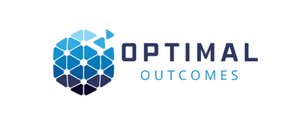Tel: 650-980-4870
Blog

Compliance & Regulation
The location of your outsourced call center is heavily influenced by a complex web of compliance and regulations. These factors can impact everything from data privacy and security to labor laws and telemarketing restrictions. Here's a breakdown of key considerations:
Data Privacy and Security:
General Data Protection Regulation (GDPR): If your business handles data from EU residents, you must comply with GDPR, regardless of your or your call center's location. This means robust data security practices, transparency over data usage, and individual control over their information.
California Consumer Privacy Act (CCPA): Similar to GDPR, CCPA grants California residents certain rights over their personal data, including access, deletion, and opt-out of sale. Call centers handling Californian data need to adhere to these protections.
Health Insurance Portability and Accountability Act (HIPAA): For healthcare call centers, HIPAA governs the protection of patients' sensitive medical information. This includes strict security measures and limitations on sharing data without specific authorization.
Payment Card Industry Data Security Standard (PCI DSS): If your call center processes payment card information, PCI DSS compliance is mandatory. This involves securing cardholder data throughout storage, transmission, and disposal.
Labor Laws and Regulations:
Minimum wage and overtime laws: Different countries and even regions within them have varying minimum wage and overtime requirements. You'll need to ensure your call center adheres to the local regulations where they operate.
Worker rights and benefits: Similar to wage laws, worker rights and benefits vary greatly. This could include provisions for sick leave, parental leave, and unionization.
Employment visas and permits: Some countries may require specific visas or permits for foreign workers in call centers. Understanding these requirements is crucial to avoid legal issues.
Telemarketing Restrictions:
Telephone Consumer Protection Act (TCPA): In the US, TCPA sets strict rules for telemarketing calls, including requiring opt-in consent and prohibiting calls to numbers on the Do Not Call Registry. Call centers must comply with these regulations, regardless of their location.
Similar regulations: Many other countries have their own laws governing telemarketing, with varying limitations and consent requirements. Understanding local regulations is essential for outbound call campaigns.
Additional Considerations:
Language skills and cultural understanding: Depending on your target audience, choosing a call center with agents who speak the relevant language and understand the local culture can significantly improve customer experience.
Technology infrastructure and security: Ensure your chosen call center has the necessary technology infrastructure and security measures in place to comply with relevant regulations and protect data.
Cost and efficiency: While cost is often a significant factor in outsourcing, remember that cheaper options may not always prioritize compliance or quality. Weighing cost against potential risks and long-term benefits is crucial.
Choosing the right location for your outsourced call center requires careful analysis of these compliance and regulatory factors. Seeking legal advice specific to your industry and target markets is highly recommended to ensure you navigate the complex landscape effectively.
Remember, non-compliance can lead to hefty fines, reputational damage, and even legal action. Investing in understanding and adhering to relevant regulations is crucial for a successful and sustainable call center operation.
Menu
Services
© Copyright 2023. Optimal Outcomes. All rights reserved.
